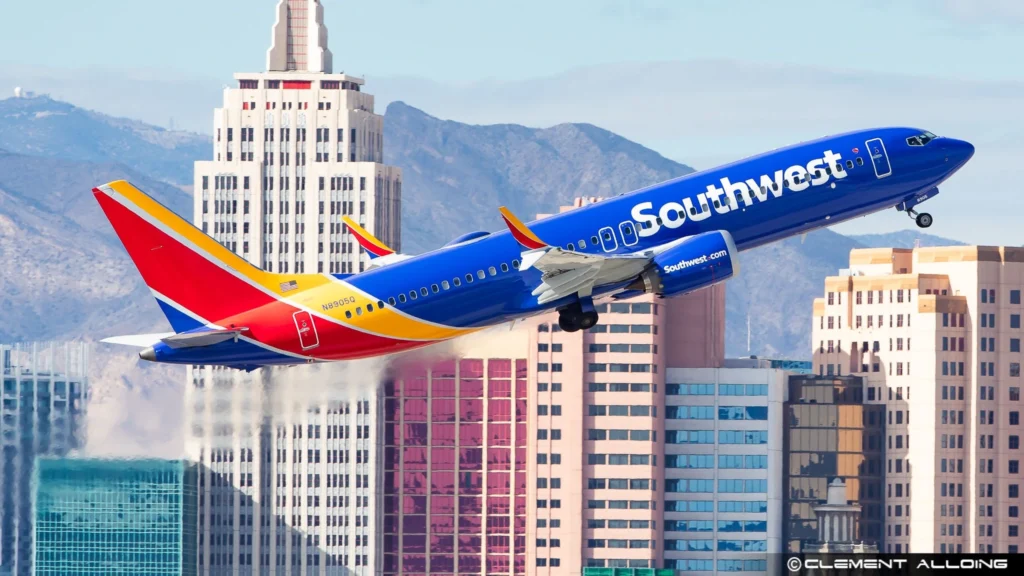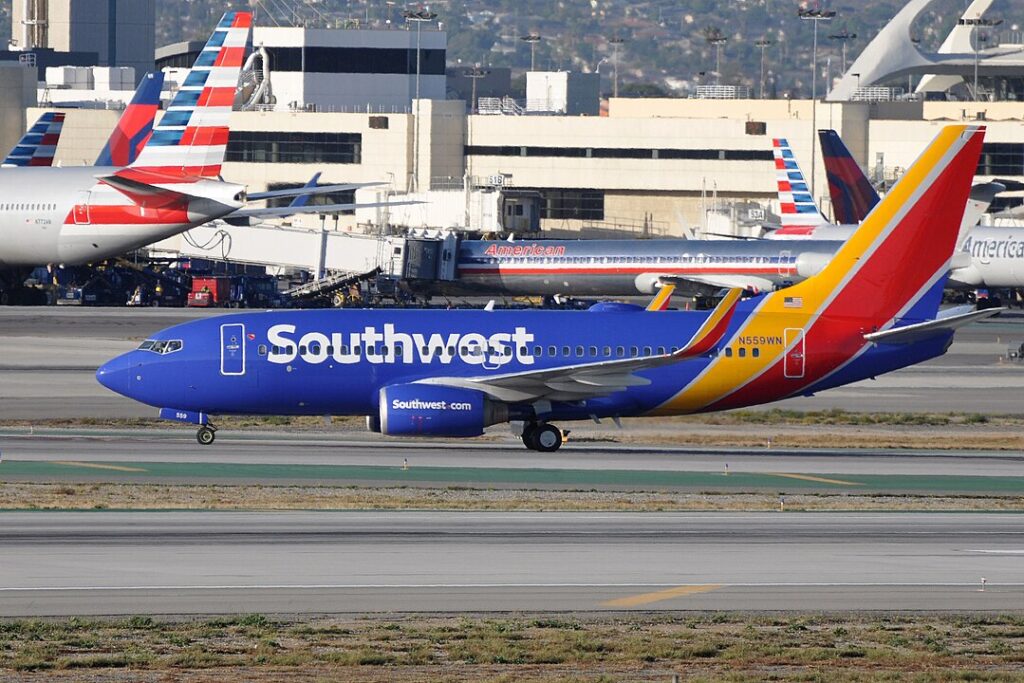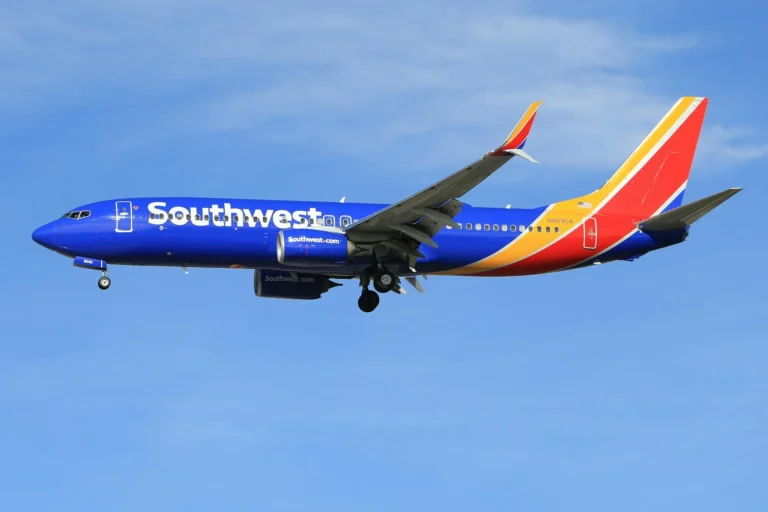MISSOURI- A passenger on a Southwest Airlines (WN) flight from New York LaGuardia (LGA) to St. Louis (STL) is suing the airline for $200,000 after slipping on an ice cube. The incident, which occurred mid-flight, has sparked a negligence lawsuit against the carrier.
Donnell Sims claims he suffered neck and back injuries when he slipped on an unattended ice cube spilled by a flight attendant during Southwest flight WN4379 on May 20. He alleges the airline failed to maintain a safe cabin environment.

Southwest Passenger $200,000 Lawsuit
According to court documents, the incident began when a flight attendant accidentally spilled a cup containing liquid and ice while collecting trash near the end of the flight.
Sims alleges the flight attendant ignored the spilled ice cubes on the carpeted aisle and continued with her duties.
Moments later, Sims got up to use the lavatory and slipped on one of the remaining ice cubes, landing forcefully and injuring his back and neck.
Despite receiving immediate assistance from the cabin crew, including Tylenol and EMS support upon landing, Sims later sought hospital care due to ongoing severe pain.
He filed a personal injury lawsuit in the Missouri district court, claiming two counts of negligence and seeking $100,000 for each count, PYOK reported.
The legal action highlights the responsibilities airlines bear for passenger safety on domestic routes, outside the framework of international conventions.

Legal Framework
Most airline injury claims for international routes fall under the Montreal Convention, which holds carriers liable for in-flight injuries. However, Sims’ flight was entirely within the United States, meaning the lawsuit relies on state-level negligence laws rather than international regulations.
Sims’ legal argument rests on the assertion that Southwest Airlines is responsible for its employee’s actions and failure to address a known hazard.
He contends that if the ice had been properly cleaned up, his fall could have been prevented.

Broader Context
In the U.S., airlines like Southwest often settle such injury claims privately to avoid costly litigation and publicity. These settlements usually remain confidential, making it difficult to assess how much compensation is awarded in cases like Sims’.
This case also underscores the broader issue of medical cost responsibility in the American healthcare system.
Legal experts note that in the absence of public healthcare, private lawsuits become a primary mechanism for recovering expenses tied to accidental injuries, even in situations where no one acted with intent to harm.
Legal proceedings are expected to reveal more about the airline’s in-flight safety protocols and how it trains crew to respond to potential hazards.
Stay tuned with us. Further, follow us on social media for the latest updates.
Join us on Telegram Group for the Latest Aviation Updates. Subsequently, follow us on Google News

